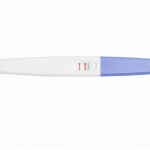In last week’s post, I talked about the decrease in energy burn that happens with weight loss. Today, let’s focus on the other major driver of weight regain – the powerful changes in hormones that happen with weight loss, which drive us to eat more and regain the weight we worked so hard to lose.
In humans, there is only one hormone that is known to increase hunger, called ghrelin. Interestingly, there are many hormones that signal satiety, telling us that we feel full. Several hormones tell us we feel full in the short term (release 10-15 minutes into a meal), including hormones called GLP-1, cholecystokinin (CCK), PYY, oxyntomodulin, and others. There are also hormones circulating that are long terms signals of fat and energy storage, which are also fullness hormones: leptin, which is made by fat cells, and insulin, which is made by the pancreas. These hormones act in the hypothalamus in our brain to regulate when and how much we eat. (there are also many emotional and social drivers of eating, called ‘hedonic’ mechanisms… stay tuned for more on this important factor another day :).
When we lose weight, leptin and insulin both drop precipitously, which result in a powerful drive to eat and regain the lost weight. The short terms regulators of hunger and fullness are affected as well, including a decrease in GLP-1, PYY, and CCK, and an increase in ghrelin, all of which work in concert to beg our brains to eat more, eat more! Studies have shown that even a year after weight loss, these hormone changes persist – an unrelenting drive to regain the lost weight.
So what can we do to combat these hormonal changes? It’s not easy – evolution has made it so to drive us HARD to look for food and eat during times of food scarcity. Keeping the energy burn up with activity helps to offset the powerful hormonal drive to increase energy intake, but a whole lotta exercise can be ‘cancelled out’ by what we can eat in just a minute or two. Fortunately, medications are now available or in development to combat these hormonal changes, which can help to maintain weight after weight loss. The only medication along these lines available in Canada is called liraglutide or Saxenda, and it has been shown not only to help people to maintain an average 6% weight lost from diet and exercise, but actually helped people lose an additional 6% weight loss over a year on top of that (with the ever critical lifestyle changes continued throughout).
Disclaimer: I was involved in the research trials of liraglutide as an obesity treatment. I receive honoraria as a continuing medical education speaker and consultant from the makers of liraglutide (Novo Nordisk). I am involved in research of medications similar to liraglutide for the treatment of obesity and type 2 diabetes.












